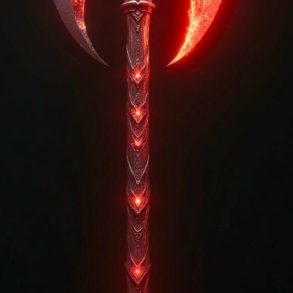Following the inauguration of the leadership of the 10th National Assembly, members of the House of Representatives are in a fierce battle for appointment into the available principal offices.
Honourable Tajudeen Abbas was elected the Speaker, while Honourable Benjamin Kalu clinched the Deputy Speakerhip.
The remaining principal offices to be filled include majority leader, deputy leader, chief whip, and deputy whip.
Others are the minority leader, deputy minority leader, minority whip, and deputy minority whip.
The North-East, North-Central, and South-South zones are particularly contending for the position of house leader, which is the third-highest position in the legislative house.
This position often represents the party that holds the majority in the House and wields power at the federal level.
Despite the All Progressives Congress (APC) having majority in the House with over 160 members, the party has not yet reached a decision on its preferred candidate for the house keader.
Elected members from the afore-mentioned zones are reportedly engaged in a fierce jostle for control over the leadership positions in the House.
Abdullahi Adamu, the national chairman of APC has stated that the party would soon select the candidates for the remaining offices in the National Assembly (NASS).
“What is now left for us, as a party, is to sit and determine the remaining principal officers”, Adamu said, following his meeting with President Bola Tinubu at the presidential villa after the inauguration of the 10th National Assembly.
“We’re going to sit over this and we want to believe that we’re going to waste no time whatsoever, we’ll come up with what we’ll give the President to get his buy-in before it’s made public or before it goes to the National Assembly. This day is very historic”, he said.
However, according to a senior party official, the APC has not yet made up its mind on the candidates for the principal offices.
The source who spoke to Leadership Newspaper under the condition of anonymity claimed that the zoning of the National Assembly presiding officers had raised a group of oppositions and that the ruling party was involved in intense negotiations to prevent a resurgence of the opposition.
The South-West, unlike the North-West and South-East, does not have a presiding officer for the House, is not thrilled about holding the position because the Senate Leader is likely to be zoned to the region that produced the president.
“Of course, the chairman said that, but they haven’t done it. They are doing broad consultations to avoid what happened when they zoned the presiding officers’ positions.”
“There were hues and cries against the decision which almost cost the party its victory, especially in the Senate where our candidate, Godswill Akpabio, escaped almost by the whiskers”, he said.
According to the source, the last two Senate Leaders, Senators Yahaya Abdullahi, and Ibrahim Gobir, were both from the North-West geo-political zone. It is therefore, given that the next one would come from the South-West, the President’s zone.
Consequently, a House Leader would not come from the South-West, he contended.
The North-East has the main contenders for the House Leader as Usman Bello Kumo from Gombe and Muktar Betara from Borno.
Hon. Kumo, who served as the co-chairman of the Joint Task Force in the 10th Assembly and supported the Abbas/Kalu joint ticket during their campaign, is vying for the position, just as Hon Betara, who was initially a strong contender for the Speakership, but withdrew at the last minute is also in the race.
For the North-Central region, two previous contenders for the Speakership, Yusuf Adamu Gagdi from Plateau and Abdulraheem Olawuyi from Kwara, are to slug it out for the House Leader position.
Interestingly, Muktar Betara, who was the main challenger to Abbas before stepping aside, has reportedly decided to retain his position as the head of the Appropriation Committee from the previous set, despite not being in contention for the House Leader position.
The dynamics of these contests reflect the complex interplay of interests and alliances among the elected members as they vie for key leadership positions in the 10th House of Representatives.
The source said, “While Betara was left with the option of emerging as House Leader and was already making moves to get the position, Kumo, the leader of the group that worked for Abbas, is also indicating interest in the position. That makes it a struggle between Borno and Gombe lawmakers.”




